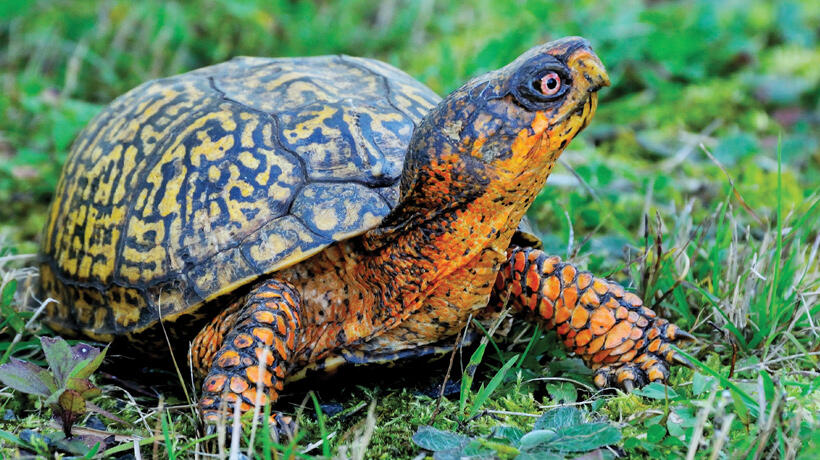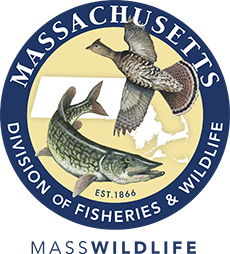- Division of Fisheries and Wildlife
Media Contact
Media Contact, MassWildlife

Video: Every turtle counts
Skip this video Every turtle counts.Turtles are known for their protective shells, but a hard shell does little to protect them from threats like habitat loss, pollution, and illegal collection. Six of the ten native freshwater turtles in Massachusetts are protected under the Massachusetts Endangered Species Act. These rare turtles need your help.
MassWildlife recently teamed up with conservationist Jeff Corwin, the US Fish and Wildlife Service, and other partners to remind the public that every turtle counts. While turtles can live a long time, they are slow to reproduce. For example, the box turtle, a species of special concern in Massachusetts, can live for more than 100 years! But only a small percentage of turtles ever reach adulthood. Turtle eggs and hatchlings make an easy meal for many predators, and crossing roads presents a danger to turtles of all ages. Most adult turtles must breed for their entire lives to replace themselves in the wild population. For this reason, removing even a single wild turtle can have a negative impact on the entire local population.
“Education is critical for the long-term conservation of turtles,” said MassWildlife Herpetologist Mike Jones. “Losing any adult turtles, especially adult females, can result in the local extinction of a population. Because every turtle counts, we’re reminding the public of the harm that removing just one turtle can do.” Most species of turtles in Massachusetts are protected and cannot be captured or kept. It is also illegal to move turtles from one location to another.
Turtles require a variety of habitat types throughout their life. For example, Blanding's turtles, a threatened species in Massachusetts, move from marshlands where they overwinter, to vernal pools where they breed and feed. Then the females move to open canopy upland areas for nesting. MassWildlife works with partners to protect and restore the different habitats where turtles are found. The public can help by leaving turtles alone when they see them in the wild. Rare turtle observations can also be reported to MassWildlife’s Heritage Hub. These observations help MassWildlife identify and conserve important habitats for rare turtles.
Turtles have lived on Earth since the time of the dinosaurs. To ensure turtles continue to thrive for the next million years, it’s important for everyone to do their part. Turtles are best kept in the wild.
